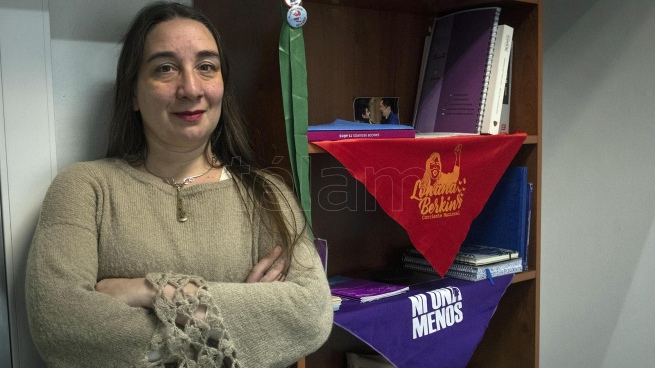The head of the new Gender and Diversity Advisory Council of the National Institute of Associativism and Social Economy (Inaes), Zaida Chmaruk, stressed that the entity seeks “mainstreaming gender and diversity policies in the promotion and supervision of the cooperative and mutual sector”.
In a report with Télam, Chmaruk, who is also a member of the Inaes board of directors, stated that the creation of an Advisory Council also aims to measure “what degree of effectiveness the policies that we propose have, what degree of specificity in the territories, what difficulty is going to be found when it comes to developing, where they have to be perfected and where not”.
The Inaes Gender and Diversity Advisory Council was created last week through Resolution 2297/2022, It will be made up of a member of the institute and a person representing each entity of the first, second or third degree (cooperatives, mutuals, federations and confederations), with the aim of seeing the largest number of entities represented at the national level.
The official explained that at the beginning of the administration in 2020, “a technical advisory commission on gender and diversity policies was convened, with that commission we worked for a year in which we put together the work agenda that the sector had been developing, and which led us to the creation of the Gender and Diversity Unit within our Institute, since we did not have any area dedicated to thinking about a transversal gender policy”.
The Advisory Council is the result of a transversal policy that Inaes has been developing from the Gender and Diversity Unit, from which work began on policies such as the Fund for Gender Equality and the Cooperative and Mutual Care Incubator.
The Fund for Gender Equality and Diversity seeks to recognize, value and finance projects of cooperatives and mutuals that incorporate a gender perspective in their initiatives.
Chmaruk argued that The fund presents two main lines: one destined so that the entities can develop training issues and the other line that appears of financing has to do with the productive expansion of the cooperatives, to be able to incorporate compañeras or to be able to further develop the economic independence of the compañeras who are members of the cooperatives”.
On the other hand, the Incubator of Cooperatives and Mutual Carecreated within the framework of the Agreement between Inaes and the Mutual Aid Association for Public and Private Employees, aims to accompany groups from all over the country in the formation of their care cooperative and the development of new mutual services.
The idea, he explained, is “to be able to carry out a comprehensive accompaniment to all those groups that were becoming cooperative, or that wanted to become cooperative, and that the assistance is not only administrative, to help them have the registration, but to be able to accompany the whole beginning of that process until the cooperative is working, is inserted and has a dynamic”, explained Chmaruk.
Another of the objectives of the Incubator is develop and promote associative enterprises that provide care and assistance services to people with dependency (older adults, childhood, disability) within the framework of the popular, social and solidarity economy.
“We have to in Argentina there are more than 100 cooperatives that provide care services, where all the members of these cooperatives are educated people, trained to carry out this work, who do it in a self-managed and cooperative way,” explained Chmaruk.
“Many times it happens that private companies charge very expensive for their services, but what reaches the hands of the worker is a very small part and then, it is a very poorly paid job, super careless and not only in working conditions but everything about the caregiver. Who can take good care of them if they are not cared for? This contradiction is a situation that the cooperatives have completely resolved,” he added.
According to the data from the survey carried out by Inaes, a total of 138 worker cooperatives dedicated to providing personal care services.
These cooperatives are present in almost all provinces, with the exception of San Luis, Corrientes, San Juan and Catamarca.
Almost 35% of the total cooperatives (48) surveyed are located in the province and in the City of Buenos Aires.
In second place is the province of Santa Fe, with 20% of the total (27), while Córdoba is in third place, with 11%.
Based on the data that emerged from the survey, Chmaruk pointed out that it was possible to identify that these “mutuals mainly work on training, they are providers of training services for caregivers and we began to work with many of them on the proposal that they incorporate cooperatives as a service who provide care.”
“What we talk about with the mutuals is that they incorporate care services as a service for their associates and that this service that they provide, be contracted to a cooperative, in this way the amplification of the care economy is articulated from the economy society,” concluded Chmaruk.









